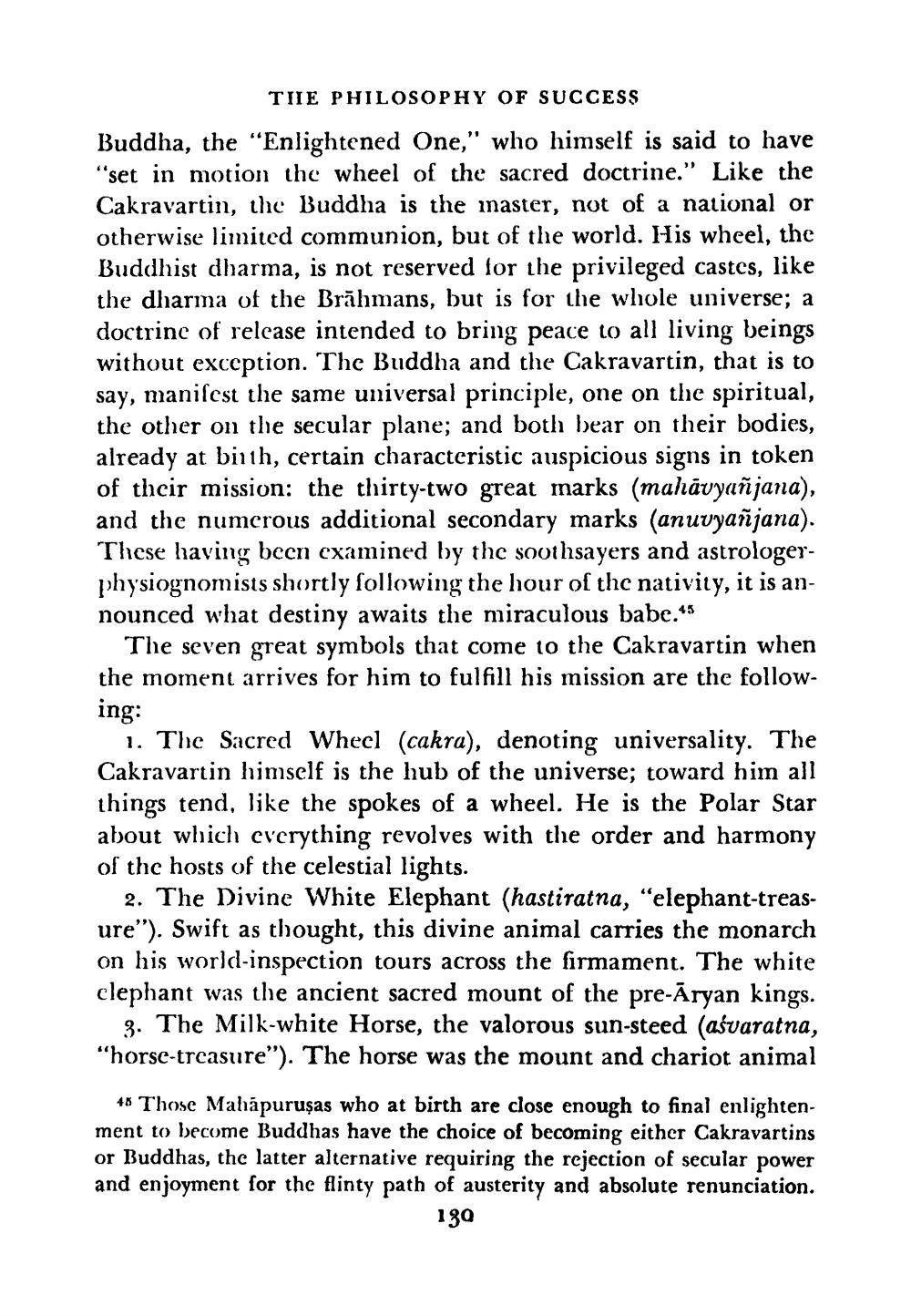________________
TIIE PHILOSOPHY OF SUCCESS Buddha, the “Enlightened One," who himself is said to have "set in motion the wheel of the sacred doctrine." Like the Cakravartin, the Buddha is the master, not of a national or otherwise limited communion, but of the world. His wheel, the Buddhist dharma, is not reserved for the privileged castes, like the dharma of the Brāhmans, but is for the whole universe; a doctrine of release intended to bring peace to all living beings without exccption. The Buddha and the Cakravartin, that is to say, manisest the same universal principle, one on the spiritual, the other on the secular plane; and both bear on their bodies, already at birih, certain characteristic auspicious signs in token of their mission: the thirty-two great marks (mahāvyañjana), and the numerous additional secondary marks (anuvyañjana). These having been examined by the soothsayers and astrologerphysiognomists shortly following the hour of the nativity, it is announced what destiny awaits the miraculous babe.'
The seven great symbols that come to the Cakravartin when the moment arrives for him to fulfill his mission are the following:
1. The Sacred Wheel (cakra), denoting universality. The Cakravartin himself is the hub of the universe; toward him all things tend, like the spokes of a wheel. He is the Polar Star about which everything revolves with the order and harmony of the hosts of the celestial lights.
2. The Divine White Elephant (hastiratna, "elephant-treasure"). Swift as thought, this divine animal carries the monarch on his world-inspection tours across the firmament. The white clephant was the ancient sacred mount of the pre-Aryan kings.
3. The Milk-white Horse, the valorous sun-steed (aśvaratna, "horse-trcasure"). The horse was the mount and chariot animal
48 Those Mahāpuruṣas who at birth are close enough to final enlightenment to become Buddhas have the choice of becoming either Cakravartins or Buddhas, the latter alternative requiring the rejection of secular power and enjoyment for thc flinty path of austerity and absolute renunciation.
130




